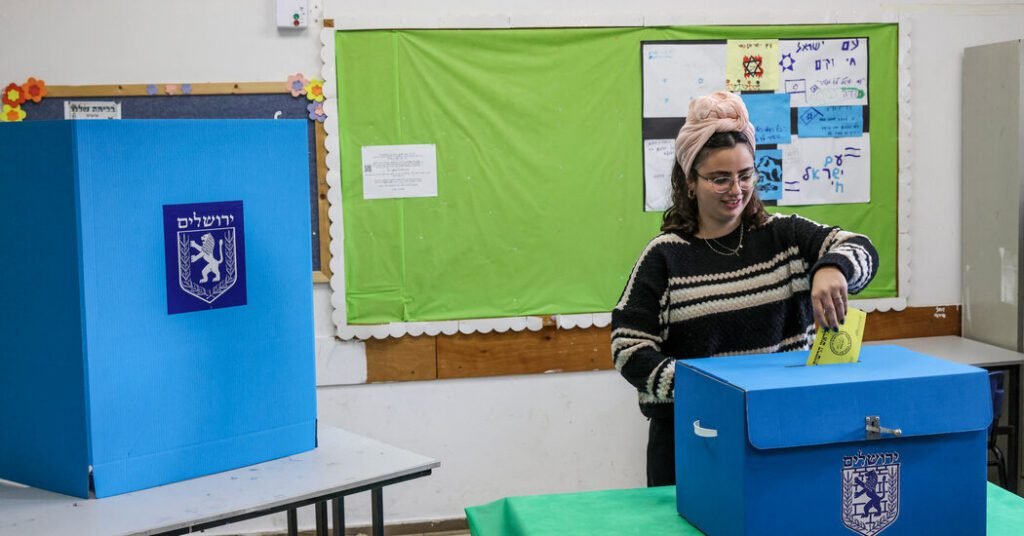Israel holds local elections on Tuesday, the first time voters go to the polls since the October 7 attacks by Hamas and the Gaza war reshaped Israeli society and put security at the top of the national agenda.
People across the country are choosing municipal and regional officials, responsible for issues such as education, garbage collection and park cleaning, in a vote delayed to October 31 because of the war. The results are not expected for a few days because the absentee ballots must be counted.
By 5:00 p.m. local time, 2.2 million votes had been cast, representing a turnout of just over 31 percent, according to the interior ministry’s election information center. According to news website Ynet, this is 9 percentage points lower than the turnout at that time in the last such election in 2018.
Although the election is not a referendum on Prime Minister Benjamin Netanyahu — who polls show is historically unpopular — more candidates than in previous elections chose not to advertise ties to his Likud party, according to Ariel Finkelstein, researcher in Jerusalem. -based non-partisan Israel Democracy Institute, which could be a sign of his waning support.
“Today the biggest concern of Israelis is personal safety,” Mr. Finkelstein said. Although the responsibility for security lies with the national government, the candidates responded to the national situation by campaigning on security issues, he said.
The focus on security is a marked shift from before the war, when Israel was gripped by a political and legal crisis over Mr. Netanyahu’s plan to overhaul the judicial system in ways that would weaken the country’s Supreme Court.
Many leaders of the protest movement that fought the reform had planned to run in the municipal elections, Mr. Finkelstein said. While he estimated those candidates were still running in about 20 of the 242 local government bodies holding elections on Tuesday, he said the issues have changed.
Protests against Mr. Netanyahu have only recently gathered strength after a lull in large-scale demonstrations after October 7. In a poll conducted in late January by the Israel Democracy Institute, a majority of respondents said they wanted national elections to be held earlier than their scheduled date in about three years.
Mr Netanyahu rejected the idea of holding national elections during a war. Ben-Dror Yemini, a columnist for the Israeli newspaper Yedioth Ahronoth, wrote on Tuesday that the local elections showed that there is no need to wait for a national vote to be held.
A further reminder of the changes since October 7 is that parts of the country near the borders with Lebanon and Gaza are not scheduled to vote until November. Most people living near Gaza have not returned to their homes since the attack, and areas near Lebanon have been evacuated as cross-border clashes with the Hezbollah militant group have escalated.
Jonathan Rice contributed to the report.

